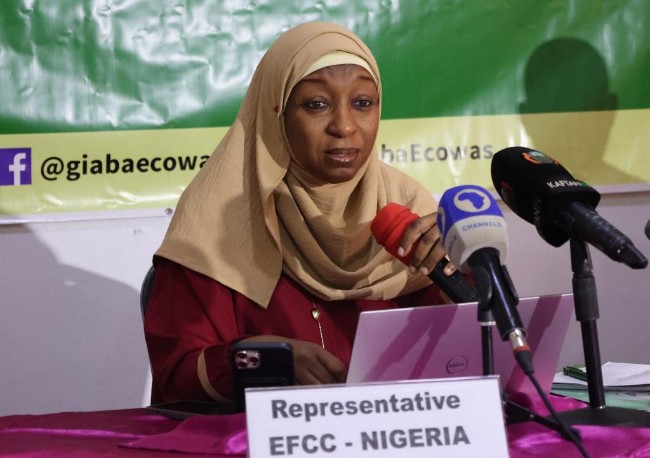News
Real estate second most vulnerable sector for money laundering in Nigeria —EFCC

Executive Chairman of the Economic and Financial Crimes Commission (EFCC) Mr. Abdulrasheed Bawa has reiterated the commitment of the Commission towards combating money laundering and terrorism financing in the real estate sector of the economy.
He stated this in Abuja on Monday, April 25, a statement by Wilson Uwujaren made available to Ripples Nigeria said he stated this at a Workshop by the Inter-Governmental Action Group against Money Laundering in West Africa (GIABA).
According to him, the Nigeria Evaluation Report shows that the real estate sector is the second most vulnerable sector to money laundering practices in Nigeria, noting that places like Abuja, Port Harcourt, Kano, Lagos were some of the major cities where properties are regularly purchased mostly in cash and often in foreign currencies, with no questions asked by anybody, about the legality of such transactions.
Bawa, who spoke through his Chief of Staff, Hadiza Gamawa Zubairu, stressed that, based on the existing realities of the real sector, the EFCC would leave no stone unturned in combating money laundering practices in the sector.
“Just last year in July, the EFCC launched an App called “The Eagle Eye” which has eased the processes of reporting economic and financial crimes and also exposed the flow of illicit funds in the real estate sector. This indeed has provided useful intelligence and goes to show the level of commitment that EFCC has in the real estate sector”, she said.
Read also: ‘Probe any aspirant who pays N100m for APC nomination form,’ HURIWA charges EFCC, ICPC
She restated the readiness of the EFCC to collaborate with relevant stakeholders in its efforts towards combating the menace, while also strengthening the capacity of the Special Control Unit against Money Laundering, SCUML to effectively discharge its responsibilities in enforcing compliance in the real estate sector.
The EFCC boss added that, loopholes being exploited to launder funds in the real sector are weak regulations, lack of strict parameters for business practices by the regulatory bodies, poor compliance to laws, among others.
Also, Director of the Nigerian Financial Intelligence Unit (NFIU) Modibbo Hamman Tukur called for collaboration and coordination among agencies, locally and regionally, in combating money laundering and illicit financial flows. He proposed stronger legislative regulations, including the need for every citizen in GIABA member states to be linked to a unified identification number, in order to make it easier to track culprits.
In his own submissions, Secretary, Real Estate Developers Association of Nigeria, REDAN, Yunusa Shuaibu, called for stricter regulation and coordination in the real sector, stressing that “the sector is currently free for all”. “We are ready to cooperate at all times to achieve this feat and this is why we decided to sponsor a bill at the National Assembly”, he said.
Director of Evaluation and Compliance, GIABA, Dr. Bruno Nduka, particularly thanked Bawa for taking keen interests in the activities of GIABA and providing tremendous support to the association. He said the real estate sector is one of the main drivers of economic growth and engine of social development across GIABA- member states.
Join the conversation
Support Ripples Nigeria, hold up solutions journalism
Balanced, fearless journalism driven by data comes at huge financial costs.
As a media platform, we hold leadership accountable and will not trade the right to press freedom and free speech for a piece of cake.
If you like what we do, and are ready to uphold solutions journalism, kindly donate to the Ripples Nigeria cause.
Your support would help to ensure that citizens and institutions continue to have free access to credible and reliable information for societal development.

























